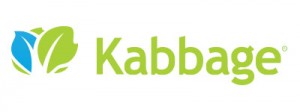
I think just about anyone who has dabbled in cake decorating has had the urge to start a cake business of their own. It’s one thing if you just want to sell a few cakes on the side to family and friends, but if you want to start a real honest to goodness business there are a lot of things you have to consider. Especially if you want to do it out of your home.
I started cake decorating in 2004 and the dream of opening my own business began. It wasn’t until 2009, after we had moved from Virginia to New Jersey, that I start to put together a plan. I soon discovered that a home based business was a lot easier in some states (like Virginia) than my new home state of New Jersey, but I was persistent. After operating my home based cake business for almost five years I thought I would share some important steps and tips that I learned while going through the process.
Six steps to starting a cake business
- Find Out The Laws In Your State
- Talk To Local Health & Town Officials
- Choose a Business Name
- Make It Legal
- Protect Your Business
- Funding Your Business
1) Find Out The Laws In Your State
So you want to start a home based cake business. Well I can tell you from experience that it can be a difficult thing to do legally. When I first started cake decorating I live in Virginia, where it was legal to run a cake business out of your home kitchen. I then moved to New Jersey which was when I discovered that only certain states allow you to run a business in your home kitchen. That doesn’t mean running a business out of your home is impossible, because I was still able to do it even in New Jersey.
The first thing you should do is check out this handy website that lists all the cottage food laws by state. A cottage food law is basically the law that allows you to make and sell food out of your home kitchen.
Many states now have some sort of cottage food law. For the ones that don’t, like my home state of New Jersey, it doesn’t mean that running a home based business is completely impossible. I was still able to build out a commercial kitchen space in my basement which is where I run my business. On the flip side, even if there are cottage food laws in your state that isn’t an automatic guarantee you can start your business. I have heard of people who tried to start a home business in a state with cottage food laws, but their local government would not let them do it. That is why you also need to:
2) Talk To Local Health & Town Officials
The first thing I did when I wanted to start my business was contact the local health department. Every health department will have different rules, but the biggest requirement for me was that I needed a completely separate space that could be separated from the house (by a door was fine) and it had to have it’s own outside entrance. Luckily we had an unfinished basement to use, if you don’t have a basement a garage would also be a potential space you could convert.
The next thing I did was contact the local code enforcement office which is where you usually had to go to get any kind of initial construction permits. The code enforcement officer agreed to sign off on the plans to convert the basement into a commercial kitchen, and we were able to submit out plans for final approval.
Since the new kitchen was to be a commercial space we did have to follow commercial construction codes, which imposed a lot of additional work (a floor drain, a grease trap, fireproofing,etc). If you have a space you can easily convert into your kitchen that covers any health department requirements without having to do any construction then you probably don’t have to worry about that.
Another thing I hadn’t thought of until after the entire kitchen was built was my homeowners insurance. The company we were using ended up dropping us because there was now a commercial space in the house. Luckily we were able to find a different company right away, but that was just an added stress that I hadn’t though of before starting the whole process so it’s best to also talk to your homeowners insurance before getting started. If you live in a development that has a Homeowners association you should also talk to them to get approval.
3) Choose a Business Name
Ok, so once you’ve determined that it is possible to open a business out of your home you can really start planning. Choosing your business name can be tough, especially if you don’t know what’s already out there. When I was first trying to figure out how to start my business I relied heavily on the U.S. Small Business Administration website. They have a great article on how to choose a business name.
I think the most important thing is that it is something meaningful to you. Whether it is really telling people what the message of your business is, or maybe it’s just a take on something you love. For example, if you loved the show the office you might go with something like “The Lady Baker” or “Holly Flax Bakery”…
 Whatever name you decide on you want to make sure it that isn’t already in use somewhere. One easy way to determine that is by doing a google search. You also want to make sure that the name is “web-ready”. That means that a) you can easily convert the name into a URL and b) that URL is available. Even though my business in Around the World in 80 Cakes, I chose to use 80Cakes for short. So my website, twitter, facebook page, etc all use 80Cakes.
Whatever name you decide on you want to make sure it that isn’t already in use somewhere. One easy way to determine that is by doing a google search. You also want to make sure that the name is “web-ready”. That means that a) you can easily convert the name into a URL and b) that URL is available. Even though my business in Around the World in 80 Cakes, I chose to use 80Cakes for short. So my website, twitter, facebook page, etc all use 80Cakes.
If you want to be really sure that your name is unique you can use LegalZooms free Entity Name Check service.
4) Make It Legal
Once you have gotten all the local government approvals to open your business, you actually need to create a business entity. When first starting my business I originally thought I would be what is called a Sole Proprietorship since I am the only employee. Upon talking with a lawyer however I discovered that being a Sole Proprietorship means there is no legal separation between you and your business. So if someone decides to sue your business, they are really suing you and all of your finances are at risk.
 Instead you should form a Limited Liability Company (LLC). Even if you are the only employee you can still form an LLC. If you don’t have a lawyer that you have worked with in the past and don’t feel like trying to find one I recommend using LegalZoom. I didn’t use them myself, but I know a number of people who have, and they all had a positive experience. LegalZoom has a quick, 3-step process to forming your LLC.
Instead you should form a Limited Liability Company (LLC). Even if you are the only employee you can still form an LLC. If you don’t have a lawyer that you have worked with in the past and don’t feel like trying to find one I recommend using LegalZoom. I didn’t use them myself, but I know a number of people who have, and they all had a positive experience. LegalZoom has a quick, 3-step process to forming your LLC.
If you do go with LegalZoom you may also want to use them to draft your contract template. You should having a well written contract that clearly lays out your company policies (how do you handle refunds/cancellations, tasting fees, deposits, etc). Having every client you work with sign a contract will help protect you and your business. Which leads me to the last topic….
5) Protect Your Business
The best way to do that is get yourself some liability insurance. This is separate from just updating your homeowners insurance. Liability insurance will help you in the event that someone sues you over your products, your equipment gets damaged or stolen, etc. You can find more information about business liability insurance on the sba.gov website.
Where to find good insurance is the tricky part. I have been going through a local insurance broker here in New Jersey called Generazio Associates. They serve a number of states outside of New Jersey (New York, Pennsylvania, Connecticut, just to name a few). If you live in any of those areas they are a good place to start.
I’ve actually had to switch insurance companies numerous times, but it was all with their help. The first company I had doubled my rate after the first year, so my agent found a better deal for me. Then when that company stopped offering liability insurance for my class of business they immediately found me a comparable alternative with no loss in coverage. So, long story short, I recommend finding an insurance broker that can get you the best coverage at the lowest rate. Plus it’s one less thing that you have to research and figure out on your own.
6) Funding your Business
Another thing that you will most likely need to get your business started, at least the right way, is some capital (a.k.a. CASH). When I was starting my business I needed some funds to buy equipment and do the renovations needed to build my kitchen. I started looking into small business loans, which usually requires you to put together a business plan first. Even with business plan software I had a hard time writing one up. Being a very small home based business I found that a lot of the typical things that go into a business plan didn’t really apply.
 At the time I was luckily enough to get a small loan through my 401K provider, so I was able to by-pass the business loan jungle. If I ever find myself needing a business loan again I plan on using a company I recently discovered called Kabbage. They loan out amounts as low as $500 and up to $100,000 to small businesses FAST with very little paperwork. If you are looking for some start-up money they are a great place to start.
At the time I was luckily enough to get a small loan through my 401K provider, so I was able to by-pass the business loan jungle. If I ever find myself needing a business loan again I plan on using a company I recently discovered called Kabbage. They loan out amounts as low as $500 and up to $100,000 to small businesses FAST with very little paperwork. If you are looking for some start-up money they are a great place to start.







Leave a Reply
You must be logged in to post a comment.